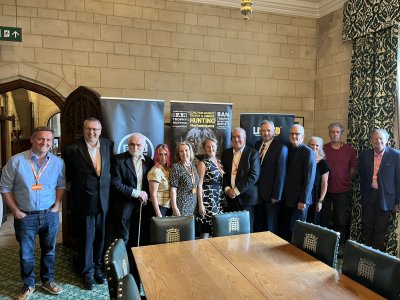News
Latest Lion Aid News
Yesterday we were back in the UK Parliament calling for a BAN on the importation of hunting trophies
Tuesday 8th July 2025
|
As we continue to remind the world that it's now 10 YEARS since Cecil was killed and yet we STILL allow hunting trophies into the UK, we were once again in the UK Parliament yesterday ( our second event there in less than a week) to show what trophy hunting looks like and how it continues to decimate wildlife. Eduardo Goncalves of the Campaign to Ban Trophy Hunting showed a film he has compiled, depicting the stark realities of killing animals as trophies, featuring many UK hunters revelling in their "sport ". We then had a Q & A session for the assembled group, including several MPs who had come to the event in support of the work we are doing to bring an end to this barbaric practice.
The figures presented revealed an estimated total of 13,014 lions in eastern and southern Africa. Furthermore, they reported a critically low figure of 342 lions in western and central Africa, where resident lion populations are highly genetically distinct. This presentation underscored the alarming decline in lion populations and the urgent need for robust conservation measures, directly linking the issue to the impact of trophy hunting. Here are the key points from the 2025 LionAid Report:
Tags: lions, Cecil, Ban Trophy Hunting, UK Parliament |
Add a comment | Posted by Chris Macsween at 18:22




 We were delighted to welcome Bob Blackman as one of the MPs who spoke in support of a ban on the importation of hunting trophies. Thank you Bob. Your words were very much appreciated.
We were delighted to welcome Bob Blackman as one of the MPs who spoke in support of a ban on the importation of hunting trophies. Thank you Bob. Your words were very much appreciated.